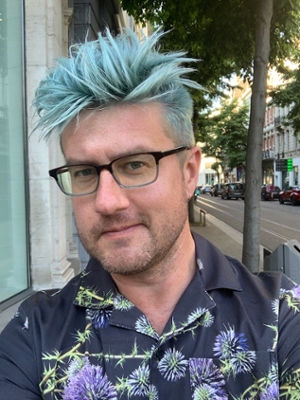
Corey Maley
- Associate Professor // Philosophy
- Associate Professor // Cornerstone
Research Focus
The philosophy of science, the philosophies of neuroscience, cognitive science, and computation.
Office and Contact
AI Affiliation
Corey’s research is focused on foundational questions about the nature of computation, particularly how to incorporate analog and other forms of non-digital computation into a coherent conceptual framework for all computation. Part of the aim of this research is to understand how to unify the cognitive and neural computations posited by scientists to explain the nature of mentality, both artificial and natural. For example, neuroscientists routinely claim that certain parts of the brain literally perform computations, while researchers in artificial intelligence and machine learning deploy computational systems to perform increasingly sophisticated cognitive tasks. However, it is unclear what unifies—and justifies—the idea that all of these are literal (and not just metaphorical) computations. This is precisely where his research aims to shed some light.
Currently, Corey is working on characterizing a fuller account of analog computation and representation, showing how it is not necessarily simply a matter of computation over continuous values or variables. Actual analog computers from the twentieth century sometimes used discrete variables, yet they were not digital. Instead, analog computation is fundamentally a matter of use physical magnitudes—either continuous or discrete—to represent the magnitudes of variables, rather than using physical magnitudes to stand as codes for the digits of the values of variables. This makes analog computation much more closely tied to the physical nature of the implementing medium than digital computation, which is largely medium-independent. Other differences between analog and digital computation show that many features we assume to be necessary for computation are only necessary for one type of computation: digital. This is simply because analog computers have been almost completely replaced by digital computers, and as such, digital computation has been taken as the only type of computation there is. While it is true that analog computers are no longer manufactured for use in scientific, academic, or industrial applications (let along for home use), their theoretical importance for understanding computation in general has been neglected. Once we understand analog computation more fully, alongside digital computation, we can understand what computation is in general, such that analog and digital are two particular species, yet similar enough to count as among the same type (i.e., computation). This is where his research aims to shed some light.